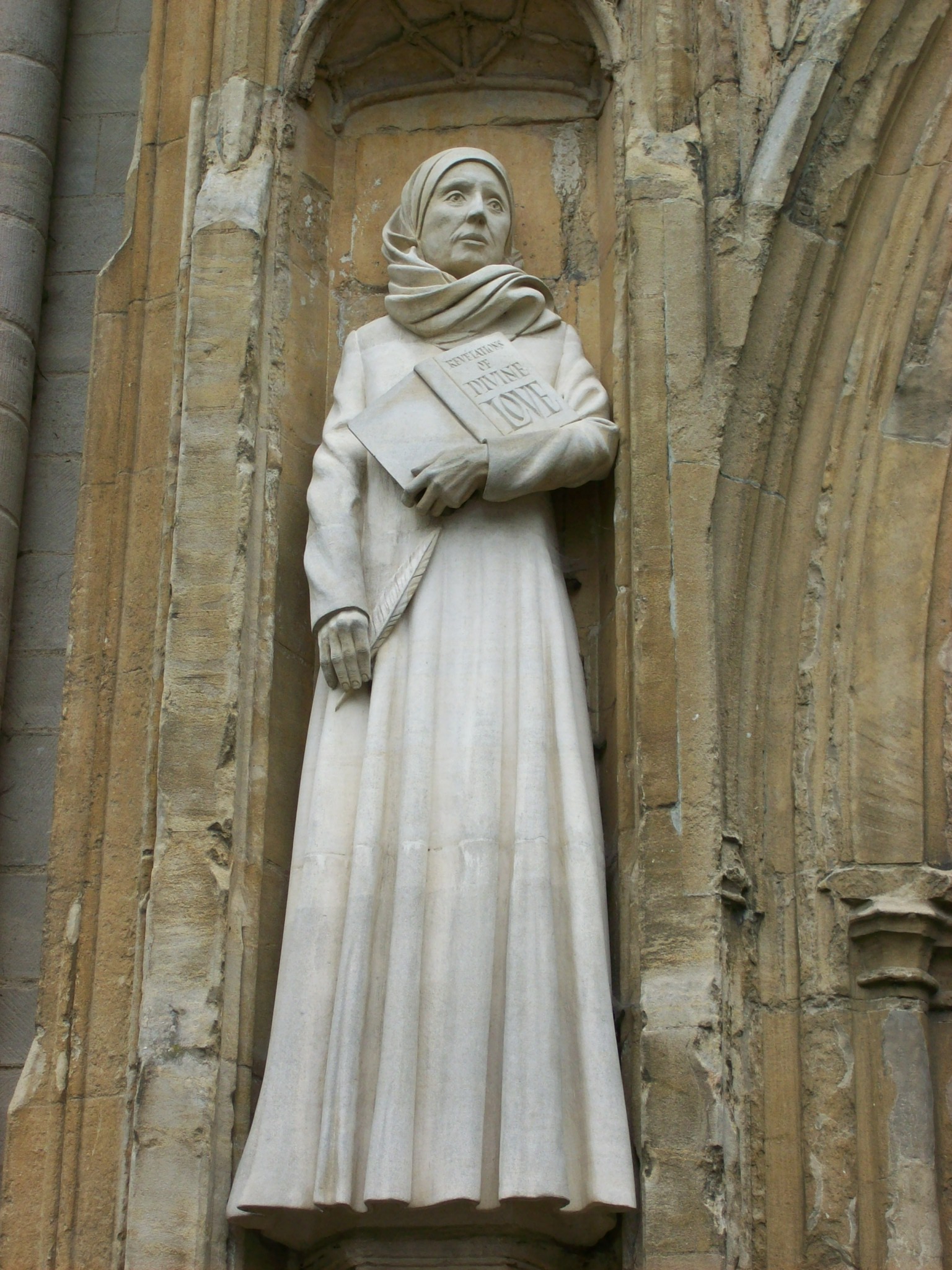The Fourteenth Revelation, Chapter 42
Julianna z Norwich: Cytaty po angielsku
The Fifteenth Revelation, Chapter 65
The Eighth Revelation, Chapter 20
The Sixteenth Revelation, Chapter 74
The Sixteenth Revelation, Chapter 71
Summations, Chapter 50
Kontekst: Yet here I wondered and marvelled with all the diligence of my soul, saying thus within me: Good Lord, I see Thee that art very Truth; and I know in truth that we sin grievously every day and be much blameworthy; and I may neither leave the knowing of Thy truth, nor do I see Thee shew to us any manner of blame. How may this be?
For I knew by the common teaching of Holy Church and by mine own feeling, that the blame of our sin continually hangeth upon us, from the first man unto the time that we come up unto heaven: then was this my marvel that I saw our Lord God shewing to us no more blame than if we were as clean and as holy as Angels be in heaven. And between these two contraries my reason was greatly travailed through my blindness, and could have no rest for dread that His blessed presence should pass from my sight and I be left in unknowing how He beholdeth us in our sin. For either behoved me to see in God that sin was all done away, or else me behoved to see in God how He seeth it, whereby I might truly know how it belongeth to me to see sin, and the manner of our blame. My longing endured, Him continually beholding; — and yet I could have no patience for great straits and perplexity, thinking: If I take it thus that we be no sinners and not blameworthy, it seemeth as I should err and fail of knowing of this truth; and if it be so that we be sinners and blameworthy, — Good Lord, how may it then be that I cannot see this true thing in Thee, which art my God, my Maker, in whom I desire to see all truths?
“God is all that is good, as to my sight, and the goodness that each thing hath, it is He.”
The First Revelation, Chapter 8
The Fourth Revelation, Chapter 12
The Fifth Revelation, Chapter 13
The Sixteenth Revelation, Chapter 83
The Fourteenth Revelation, Chapter 43
Summations, Chapter 54
Revelations of Divine Love (c. 1393), Chapter 3
Summations, Chapter 62
The Thirteenth Revelation, Chapter 30
The Eighth Revelation, Chapter 19
The Ninth Revelation, Chapter 23
The Sixteenth Revelation, Chapter 71
Summations, Chapter 62
The Sixteenth Revelation, Chapter 77
The Thirteenth Revelation, Chapter 38
Revelations of Divine Love (c. 1393), Chapter 2
The Thirteenth Revelation, Chapter 35
The First Revelation, Chapter 5
“This book is begun by God’s gift and His grace, but it is not yet performed, as to my sight.”
The Sixteenth Revelation, Chapter 86
